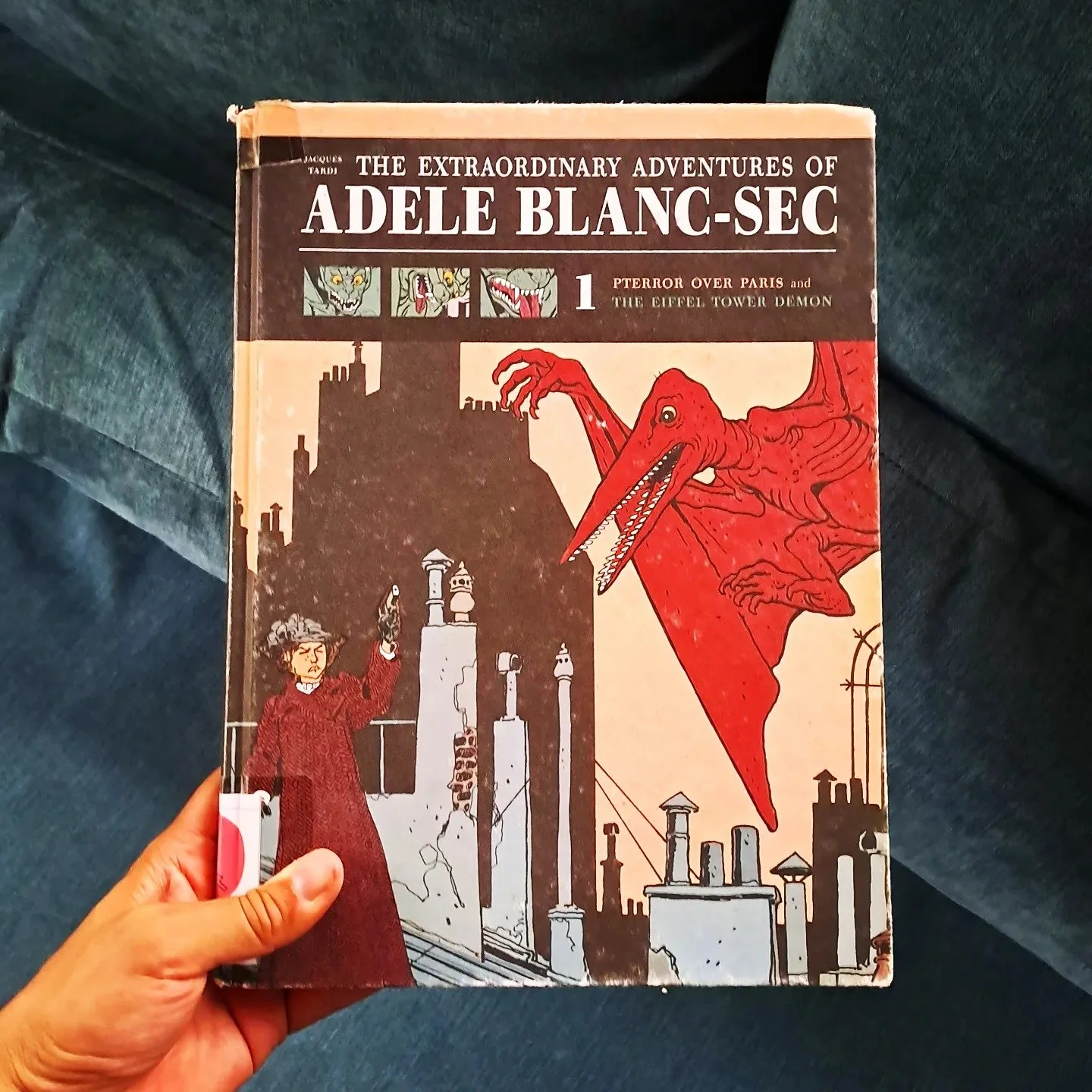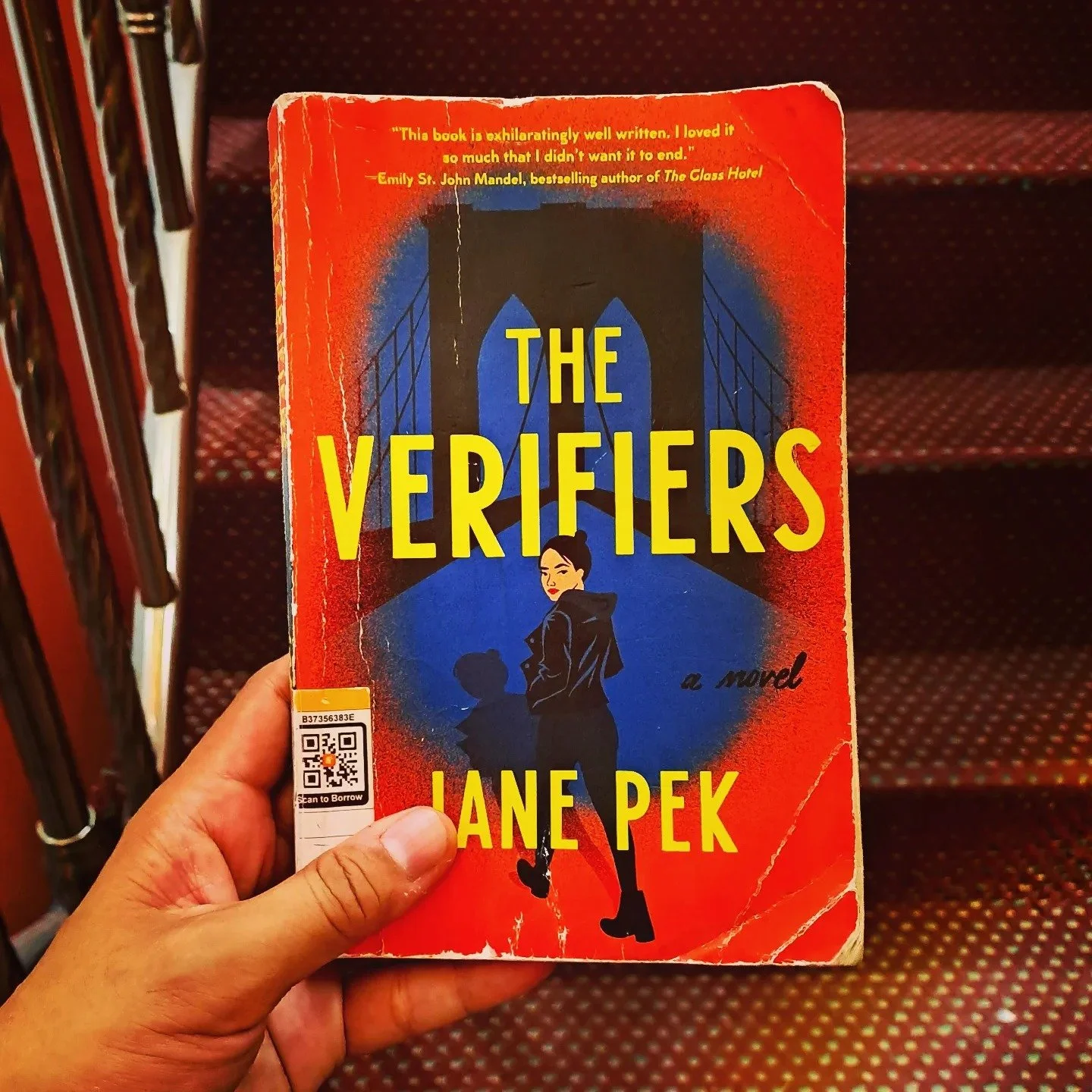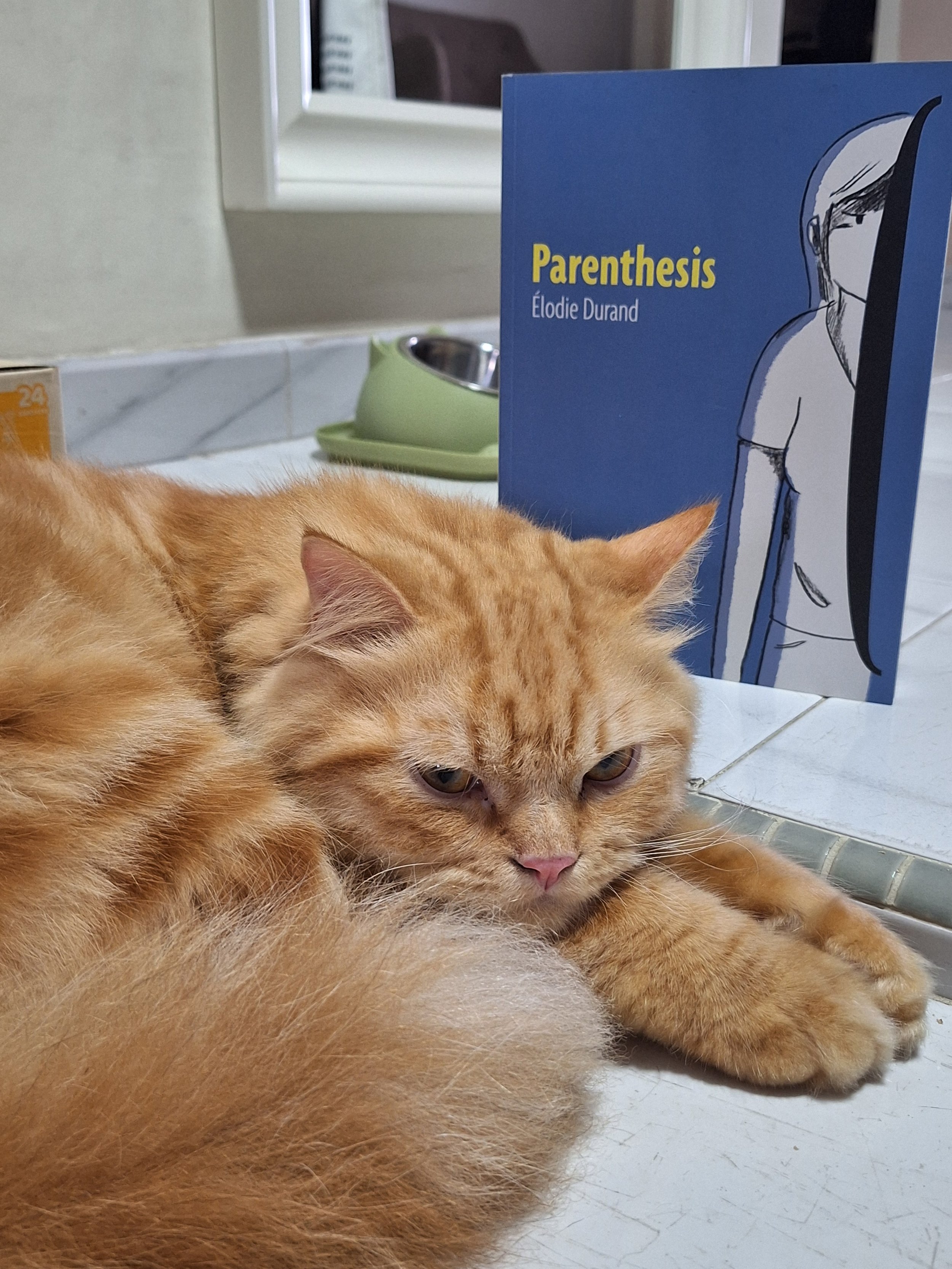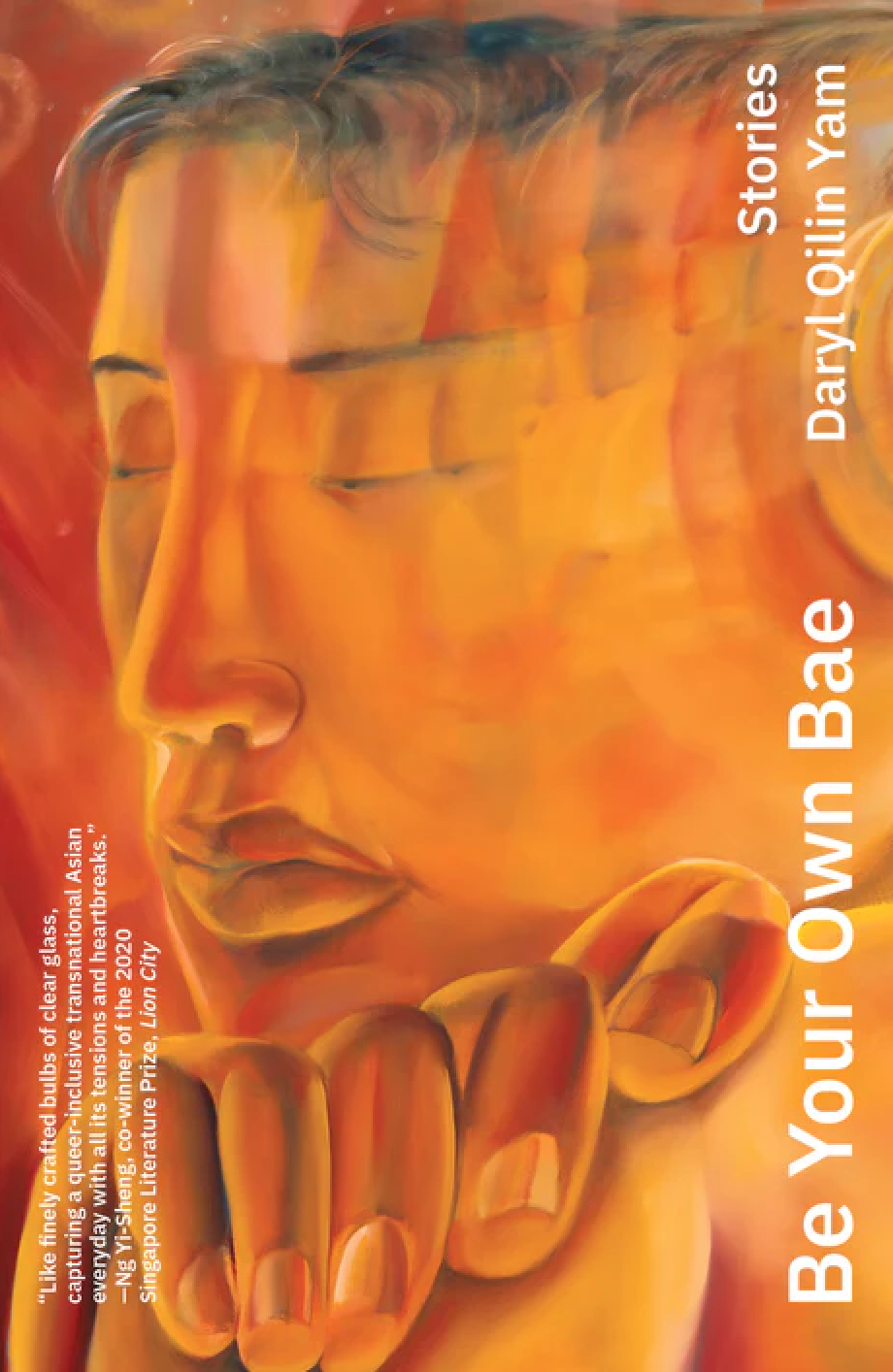#YISHREADS September 2024
By Ng Yi-Sheng / @yishkabob
I’ve been wanting to do a crime thriller column for ages, simply because it’s a super-successful and exportable genre in Singapore literature—think of Shamini Flint’s Inspector Singh series, Neil Humphreys’ Inspector Low series, Ovidia Yu’s Aunty Lee and Crown Colony series. Though I’m more of an SFF guy, us writers of genre fiction have to stick together, y’know?
So here are five works of crime and detective fiction, starting off in early 20th century Malaya and ending in cyberpunk Peru. We’re covering five continents—our other three works are by a legendary French comic writer, a Kenyan novelist based in Singapore, and a Singaporean based in NYC—with each one of the works offering an insight into the societies that created them, with all their gritty underbellies, fluid social hierarchies and/or dark dreams of twisted history.
The Mystery of "A Yellow Sleuth": Detective Sergeant Nor Nalla, Federated Malay States Police, by Ronald Allan
NUS Press, 2018
This is one of those crazy colonial texts, recently recovered by postcolonial studies academia to gawk at. Originally published in the UK in 1931 under the title A Yellow Sleuth, Being the Autobiography of "Nor Nalla" (Detective-Sergeant Federated Malay States Police), it was only discovered in the 2010s that its true author was a British rubber plantation manager (Ron Allan = Nor Nalla) who’d spent only a few years in an estate near Kuala Lumpur (c. 1909-1914). He might've written this just to get into a literary club, but some folks took it as face value, believing that it just might be a genuine memoir by a colonial subject!
Brownface aside, the book's kinda amazing—but not because the writing's stellar. The stories of the cases are way too compressed, a couple per chapter, no dialogue, no emotional investment, just action. What makes this remarkable is the way our protagonist's painted kind of as a chameleon superspy, learning and speaking a zillion languages from Hainanese to Javanese to Vietnamese to Tamil to French, and going undercover on police missions from his boyhood as a Chinese rickshaw-puller, a Siamese peasant, a Sakai tribesman (he's got the blood and language from his mum's side), beating up gangsters and escaping from prisons and killing murderers with parangs and blowpipes and stealing back Sultans' heirlooms and romancing Chinese sing-song girls and cracking down on cocaine dealerships in Paris and Bolsheviks in Singapore and World War One spies in the trenches and rationed butter traffickers in Cardiff. All while remaining loyal to the British police force, which keeps him an unknown for their intelligence purposes!
Honestly reminds me of historian Farish Noor's reading of Thomas de Quincey's Diary of an Opium Eater,[i] in which the author encounters a Malay visitor who astounds him by consuming an entire block of opium and walking away, then has a vivid dream envisioning him as the inheritor of all the vastness of Asian history and heritage. Instead of thinking of Malayness in terms of a cultural deficit, it's worth acknowledging this alternative colonial vision of the Malay world as stunningly cosmopolitan, with people blending and befriending and breeding each other across race lines: indigenous, immigrant, emigrant, and every single person with agency.
(Oh, and Chinese people are almost always the villains. Won't argue with that!)
The Extraordinary Adventures of Adèle Blanc-Sec, Volume 1: Pterror over Paris and the Eiffel Tower Demon, by Jacques Tardi
Edited and translated by Kim Thompson
Fantagraphics Books, 2010
I've been curious about this French graphic novel, first published in 1972, ever since I watched Luc Besson's 2010 action film based on the franchise.[ii] (Still mad that there was never a sequel!)
Set in the early 1910s, the story centres on the titular heroine, a novelist-turned-adventuress, as she chases after mysterious cults and societies intent on resurrecting prehistoric beasts (not just a pterodactyl, but also a Pithecanthropus in Volume 2: The Mad Scientist and Mummies on Parade), worshipping demons (Pazuzu of The Exorcist plays a major role), and generally bopping each other on the head or straight-up murdering each other.
Honestly, the movie beats the original in some respects: it's more centred, with a stronger emotional core. The actual comics feel written on the fly, with conspiracies erupting into other conspiracies, allies suddenly transforming into mortal enemies, and plot threads all over the place—the mummies in Volume 2 only appear in the last pages, having apparently reanimated themselves without action from the mortal characters!
But it's still rather lovely, seeing the geographies of Belle Époque Paris reproduced in such detail—encounters specifically take place at the Jardin des Plantes, the Pont Neuf, the statue of Joan of Arc. How lovely if the streets of Singapore were similarly layered in story! And yes, I might get a membership to the Alliance Française Library, just so I can find out with my schoolboy French what happens in Volumes 3 through 10.
Of Pawns and Players, by Kinyanjui Kombani
Catapult, 2018
I’ve previously reviewed this author’s 2022 novel Hawkers-Pokers,[iii] and I’m pleased to report that this novella’s just as good. Like most of his works, it focuses on an encounter between Nairobi's urban poor and megarich: Tom, a mutura (offal sausage) street hawker, ends up attracting the affections of Aria, the daughter of a big-time online gambling businessman.
After a few brush-ins with the police and the horrifically pungent prison cells, he gets enlisted into the dad's corrupt business, tasked with being the designated winner of US$3 million... which turns out to be just the beginning of a high-octane heist plot, full of matatu chases and double-crossings.
I won’t spoil the ending, but I’ve gotta say it’s unexpected, very satisfactory, kinda poignant and actually rather believable, bringing a close to this moralistic tale about the dangers of gambling and systemic corruption. Plus, it's left me with a craving for mutura, which the author actually served me in his home a few years ago!
The Verifiers, by Jane Pek
Vintage Books, 2022
I was at Creative Arts Programme with this author, back when we were both teenagers! But her novel's an example of Sing Lit that's got nothing to do with Singapore: the story takes place entirely in New York City, with Taiwanese-American tech employee Claudia Lin as our protagonist. The only time Singapore's mentioned is as a murder suspect's future flight destination!
Claudia’s a new hire at a company named Veracity, which helps their exclusive clientele to figure out if people on dating apps are lying, which means she splits her time between electronic detective work and actual gumshoe hiding-in-crowds—and she’s great at this, since it’s pretty easy for a tiny Asian girl to go unnoticed in the global city. At the same time, she's a huge lit nerd, which means she's comparing everything in her life to the works of Jane Austen or Agatha Christie... or her favourite Inspector Yuan mystery series, set in Imperial China, which actually comes in useful once she starts hunting a killer.
So this is a cool upgrade of detective tropes: Claudia's sometimes a lone wolf, sometimes armed with the full technology of her company and late capitalist surveillance, and never afraid to use her smartphone. Oh, and she's lesbian, but deeply awkward about it—she's not on a quest for love, and (slight spoiler) she doesn't seize opportunities when they present themselves.
What makes the novel a little heavier is the fact that it's also about the messiness of relationships, in particular with her family—Claudia's the youngest kid of her neurotic immigrant mother, and over the course of the novel we learn that her brother and sister, portrayed as annoyingly perfect paragons in career and beauty respectively, are 100% justified in resenting her. So she's processing their traumas, comparing them to what the victim and suspects of her case may have experienced... And while this could be praised as elevating the text from mere genre fiction, it all feels like a bit much. The threads don't all neatly come together in the end—but I suppose that’s meant to be resolved in the sequel, The Rivals, due for release on 3 December this year.
Basically, I feel like we're torn between literary and crime fiction, and I'm not sure if we've got the depth of the first or the breezy sexiness of the other. Still, I've gotta applaud Jane's ambition in wanting to do so much in a single novel! Maybe we’ll get a proper romance in the next book, too!
Anticucho & Other Peruvian Cyberpunk Stories, by Gustaffo Vargas
Translated and adapted by Fraser Campbell
Comic Printing UK, 2024
Another graphic novel to close with: one I picked up from the trade booths of Worldcon 2024. It’s a trio of neon-hued tales set in a grungy futuristic Lima that’s not just cyberpunk but also Andeanfuturist: there are violent street gangs with costumes styled after Chavín archaeology and Quechua folk dance characters; the gallinazos (black vultures) which feed on the city’s garbage are now cybernetically enhanced, and the titular story—an all-action, wordless chase between the rival street kid factions Las Chaposas and Las Pirañas—is also a celebration of Peruvian food, including ceviche, chica morada and aji de gallina. Makes a welcome change from the usual aesthetic of Techno-Orientalism, i.e. showing that we’re in a dystopia cos there are neon signs in Japanese!
The main plot follows Las Pirañas on their missions and escapades, with a focus on the daring Lila and the tubby Limón. But these aren’t innocent Dennis the Menace or Bookworm Club adventures: they're bloody, body-horror operations involving gory battles, surgery and the mind-altering effects of swallowing genetically modified squid. A little mature—but then Latin America’s always looked towards the maturity of French comics rather than namby-pamby Americana.
Also of note—unlike in the other works I’m reviewing, there’s no detectives or law enforcers here. This is a tale of anarchy and survival, without even protagonists old enough to remember a status quo to restore. Punk AF.
Endnotes
[i] Farish Noor. “Thomas De Quincey and the Malay From Nowhere.” The Other Malaysia: Writings on Malaysia’s Subaltern History. Silverfish Books, 2002. First published as Farish Noor. “The unknown Malay who flipped De Quincey.” Malaysiakini. 18 May 2001. https://www.malaysiakini.com/columns/6849.
[ii] Luc Besson. The Extraordinary Adventures of Adèle Blanc-Sec. EuropaCorp, 2010.
[iii] Ng Yi-Sheng. “#YISHREADS February 2024.” Singapore Unbound. 23 February 2024. https://singaporeunbound.org/suspect-journal/2024/2/23/yishreads-february-2024
Ng Yi-Sheng (he/him) is a Singaporean writer, researcher and LGBT+ activist. His books include the short-story collection Lion City and the poetry collection last boy (both winners of the Singapore Literature Prize), the non-fiction work SQ21: Singapore Queers in the 21st Century, the spoken word collection Loud Poems for a Very Obliging Audience, and the performance lecture compilation Black Waters, Pink Sands. He recently edited A Mosque in the Jungle: Classic Ghost Stories by Othman Wok and EXHALE: an Anthology of Queer Singapore Voices. Check out his website at ngyisheng.com.








In Taiwan Travelogue, ‘twinned souls… are at once lost, but also found, in translation.’ A review by Eunice Lim.